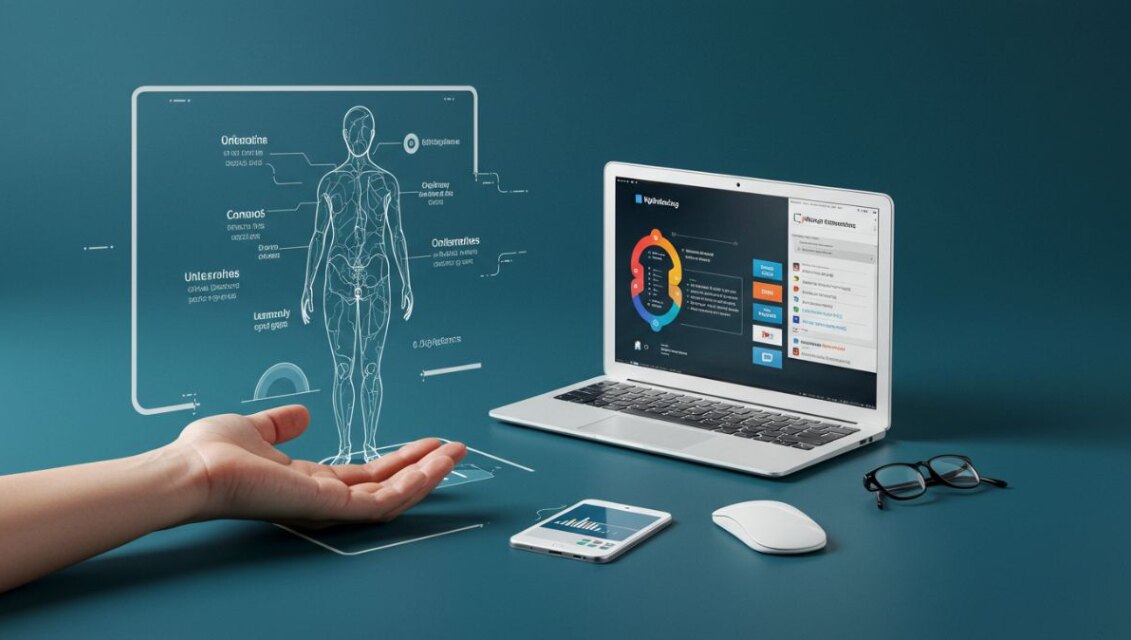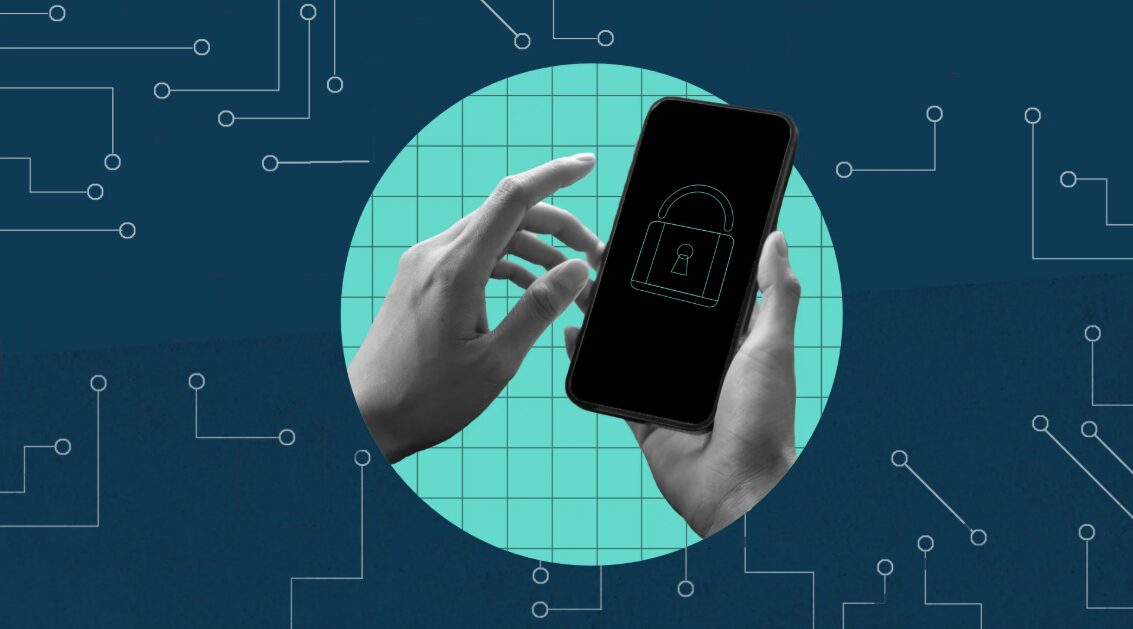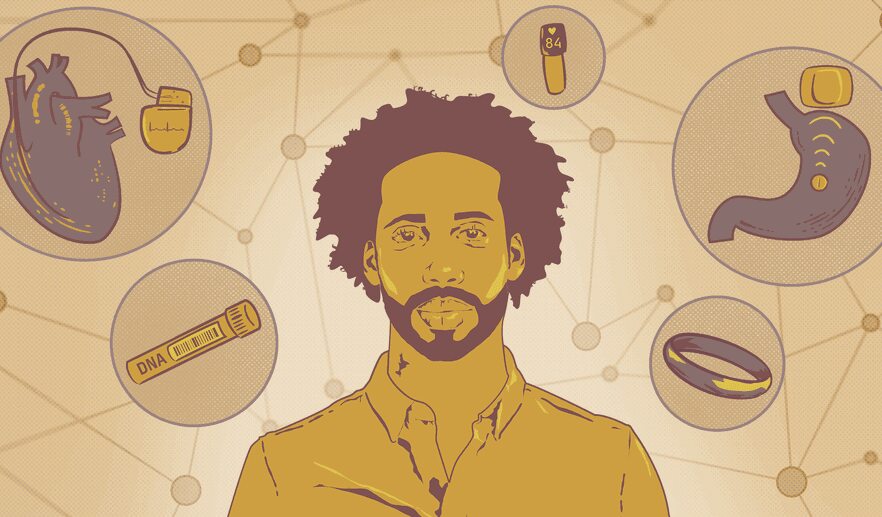Iofbodies: Applications, Ethics, and Privacy Concerns
Welcome to the future of human-technology integration. Iofbodies represents a groundbreaking leap in how we interact with the digital world. Imagine a reality where tiny devices seamlessly connect your body to the internet—monitoring your health, enhancing your performance, and even saving lives. From revolutionizing healthcare to boosting workplace efficiency, it offer incredible potential. But with great power comes great responsibility, and we must navigate the ethical and privacy implications carefully.

Read Our Latest Blogs

Discover iofbodies.com: Join Sustainable Living Today!
Did you know that 8 million metric tons of plastic pollute our oceans annually? This shocking fact is evidence of the necessity of sustainable living.

Iofbodies.com Applications: Monitor Better, Save Now!
How do we stay at the forefront of ecological issues like pollution and global warming in real time? Never has checking up on the health

Discover iofbodies.com Ethics: Trust & Wellness Await!
iofbodies.com Ethics In the rapidly changing digital health space, iofbodies.com is a shining example of integrity and trust. This wellness and healthcare platform uses advanced

Iofbodies.com Privacy: Protect Your Data Now!
Did you know that 73% of people who are online worry about their information being taken advantage of online? That’s a testament, in fact, to

Secure Your Data with iofbodies.com Privacy App – Try Now!
In an age where wearable technology tracks everything from your heart rate to your stress level, protecting your private health information has never been more

The Future of the Internet of Bodies: Thrilling Yet Risky!
The Future of the Internet of Bodies The Internet of Bodies (IoB) is changing the way we engage with technology. This emerging discipline links human

Iofbodies Applications: Transforming Lives
Iofbodies applications are vast and game-changing. They’re revolutionizing healthcare, fitness, and even how we work. Let’s break it down.
Healthcare: A New Era of Care
In healthcare, iofbodies are saving lives and cutting costs. Remote monitoring is a standout example. Patients with chronic illnesses, like diabetes, use continuous glucose monitors (CGMs) to track blood sugar 24/7. If levels spike, alerts ping their phones—and their doctors’. No more endless clinic visits. For heart patients, implantable defibrillators detect irregular rhythms and notify cardiologists instantly. A 2025 study in The Lancet showed remote monitoring slashed hospital readmissions by 35% for heart failure patients.
Personalized medicine is another win. It provide real-time data, letting doctors tailor treatments to your exact needs. Imagine a cancer patient with a sensor tracking how their body responds to chemo—dosages adjust on the fly. It’s precision care, powered by iofbodies applications.
Fitness and Wellness: Your Personal Coach
Fitness buffs love iofbodies too. Wearables like Fitbit or Whoop track everything—steps, sleep, even stress. They nudge you toward healthier habits with friendly reminders. Smart clothing takes it up a notch. Brands like Hexoskin weave sensors into shirts to monitor breathing and movement. Athletes use this data to tweak their training and avoid injuries. In 2025, the NFL reported a 20% drop in player injuries after adopting it for real-time performance tracking. Whether you’re a pro or a weekend warrior, these tools make fitness smarter.
Workplace Efficiency: Boosting Productivity
At work, iofbodies are quietly reshaping efficiency. Companies like Tesla use wearables to monitor employee fatigue in factories. Sensors spot when a worker’s heart rate signals exhaustion, prompting breaks to prevent accidents. Office settings are jumping in too. Stress-monitoring bands help managers spot burnout before it hits hard. A 2024 Deloitte report found firms using it saw a 15% productivity boost. But this raises tricky questions about surveillance—more on that later. For now, it’s clear: iofbodies applications are rewriting the rules of work.

Iofbodies Ethics: Navigating the Moral Maze
With great power comes great responsibility. Iofbodies ethics are a hot topic, and for good reason. These devices blur lines between convenience and control. Let’s explore the big ethical hurdles.
Consent and Autonomy: Do You Really Agree?
Consent is a cornerstone of iofbodies ethics. When you slap on a fitness tracker, do you know what you’re signing up for? Most users click “agree” without reading the fine print. Those terms often hide how much data gets collected—or who sees it. A 2025 Pew Research survey found 70% of IoB users didn’t realize their info could be shared with third parties. Once data flows, stopping it is tough. Can you truly opt out? This lack of clarity chips away at your autonomy. Experts like Dr. Maria Gonzalez, an ethicist at Stanford, warn, “Without informed consent, iofbodies risk turning users into unwitting data mines.”
Data Ownership: Who Controls Your Info?
Who owns the data your body generates? That’s a messy fight. Device makers often claim it, saying they need it to improve products. Users argue it’s theirs—after all, it’s their heartbeat. Third parties, like insurers, want in too. Imagine your health data hiking your premiums or costing you a job. A 2024 case saw a U.S. insurer raise rates based on Fitbit data, sparking outrage. Some push for a “data commons” model, where users hold the reins. Until laws catch up, iofbodies ethics will wrestle with this tug-of-war.
Potential for Misuse: The Dark Side
Misuse is the shadow looming over iofbodies. Governments could track citizens’ vitals for control—think dystopian health surveillance. Employers might screen workers based on stress levels, fueling discrimination. Hackers are a threat too. In 2023, a breach exposed pacemaker data from 10,000 patients, proving the stakes are high. Marketing firms could buy your sleep patterns to target ads. The RAND Corporation’s 2025 report flagged these risks, urging strict safeguards. Without them, iofbodies could shift from helpers to hazards.
Iofbodies Privacy: Protecting What’s Yours
Iofbodies privacy is a growing worry. These devices know you inside and out—literally. That intimacy brings risks we can’t ignore. Let’s dig into the key concerns.

Data Security: Keeping Hackers Out
Security is job one for iofbodies privacy. These devices hoard sensitive data—prime bait for cybercriminals. A 2025 LevelBlue study found 65% of IoB gadgets had weak spots, like unencrypted connections. Remember that insulin pump hack in 2018? Hackers could’ve overdosed patients remotely. Today’s fixes include end-to-end encryption and regular updates. But not every device keeps up. Users need to demand high standards—or risk a breach spilling their health secrets.
User Privacy: The Cost of Constant Tracking
Ever feel watched? With iofbodies, you might be. They monitor you round-the-clock, logging your every move. That’s great for fitness goals, but it erodes personal space. A 2025 Wired piece called it “the privacy tax of convenience.” The data paints a detailed picture—your diet, your stress, your sleep. If it leaks, strangers could know you better than your friends. Users face a tough choice: embrace the benefits or guard their solitude. Iofbodies privacy hinges on finding that balance.
Regulatory Landscape: Laws Lag Behind
Laws aren’t keeping pace with iofbodies privacy needs. GDPR in Europe and HIPAA in the U.S. offer some shield, but they’re old-school. They weren’t built for devices that never stop collecting. The EU’s 2025 IoB Data Protection Act aims to plug gaps, mandating clearer consent and data limits. In the U.S., it’s a state-by-state mess—California’s strict, Texas less so. Experts say we need global rules tailored to IoB. Until then, users are stuck in a gray zone, hoping regulators catch up.

Iofbodies Privacy App: A Shield for Your Data
Enter the Iofbodies Privacy App—a tool to tackle these worries head-on. It’s not perfect, but it’s a start. Here’s how it works and why it matters.
Features That Empower You
The Iofbodies Privacy App puts you in charge. It encrypts your data, so only you and approved folks can peek. Anonymization strips out personal bits before sharing—like a digital mask. You can fine-tune what’s shared: heart rate to your doc, steps to your app, nothing to advertisers. It syncs with big names like Apple Watch and niche implants too. Launched in 2024, it’s now on version 2.1, with smoother performance per user reviews on TechRadar. It’s a practical fix for iofbodies privacy woes.
User Experience: Simple Yet Strong
Ease is the app’s strength. Its clean design walks you through settings—no tech degree needed. Users rave about its clarity, though some flag hiccups with older devices. A 2025 CNET review gave it 4.5 stars, praising its “intuitive controls.” Setup takes minutes: link your device, pick your rules, done. It’s not flawless—compatibility gaps linger—but it’s a lifeline for privacy-conscious folks navigating iofbodies.
Impact: A Step Forward
This app directly fights iofbodies ethics and privacy battles. It hands control back to you, cutting risks of misuse. Encryption thwarts hackers; selective sharing curbs overreach. Still, it’s not a cure-all. If your device itself is shaky, the app can’t fix that. And it skips some niche gadgets. Even so, it’s a beacon of hope. As IoB grows, tools like the Iofbodies Privacy App could set the standard for user empowerment.
Iofbodies in Our Lives: Power, Privacy, and Ethics
Iofbodies are a marvel, blending tech with our very being. Their applications in healthcare, fitness, and work are transformative—saving lives, boosting wellness, and streamlining jobs. Yet, the ride isn’t smooth. Iofbodies ethics demand we tackle consent, ownership, and misuse head-on. Iofbodies privacy calls for tighter security and better laws. The Iofbodies Privacy App offers a lifeline, proving we can innovate responsibly. As these devices weave deeper into our lives, balance is key. Stay informed. Use tools that protect you. The future is bright—but only if we steer it right.
